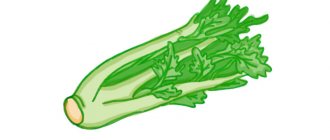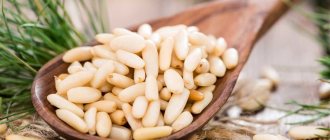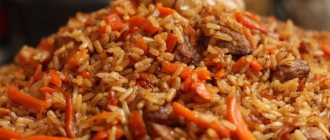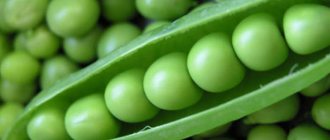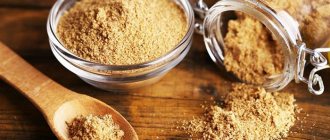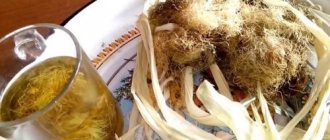Can I eat these fruits while breastfeeding?
Citrus fruits are acceptable on the menu, but not in the first months of feeding. Mom can eat tangerines if:
- she ate them during pregnancy;
- No relatives are allergic to citrus fruits.
The later the mother starts eating tangerines, the lower the risk of allergies in the baby.
Features of introducing tangerine into the diet during breastfeeding
Whether a nursing mother can eat tangerines depends on many factors. Pediatricians recommend that women include this product in their diet when the child reaches 5-6 months of age. After complementary feeding is started, the nursing mother can diversify her diet a little.
At the same time, if the woman herself and her relatives are not allergic to citrus fruits, and she consumed fruits during pregnancy, then the inclusion of this product is allowed 1-2 months after the start of lactation. When breastfeeding, you should include tangerines in your diet in small portions.
At the first dose, you can eat only a few slices. It is better to consume them early in the morning, a few hours before the first feeding. After this, you should carefully monitor the child’s condition for at least 3 days, paying special attention to stool and possible skin rashes. If undesirable reactions occur, the product should be excluded from the diet.
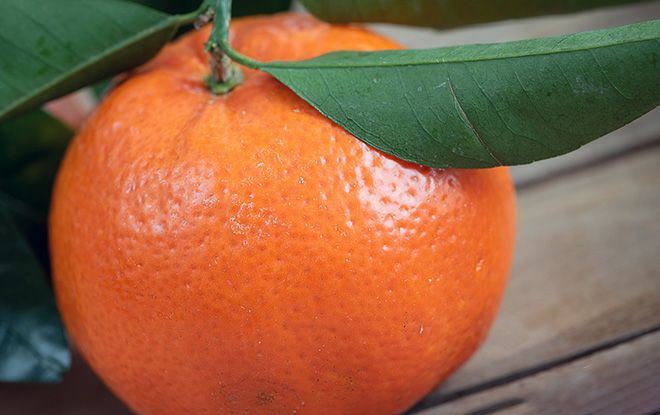
If no negative effects are observed, you can gradually increase the amount of the product. In this case, you need to maintain a step of 3 days and carefully monitor the reaction of the child’s body. Even if there are no side effects, mothers during lactation are not recommended to consume more than 3 tangerines per day, and this amount should not be eaten at one time.
We recommend that you read Wormy Tangerines
Can they be eaten in the 1st, 2nd or 3rd month of lactation?
- In the first month of feeding, experts advise sticking to a diet. The reason is the child’s weak gastrointestinal tract. During this period, the child’s body is especially susceptible to all products consumed by the mother. And fruits can cause an allergic reaction.
- In the second month of breastfeeding, tangerines should also not be added to the diet. Because the baby’s digestive system is not yet strong enough. Therefore, a nursing mother needs to continue to adhere to the diet.
- The third month of lactation is the most favorable period for including tangerines in your menu. Start with one slice. The baby's reaction is monitored throughout the day. If there are no negative signs, then the number of slices can be increased. But you are allowed to eat only 1 tangerine per week.
- The fourth month is considered the safest for introducing citrus fruits into the diet of a nursing mother. The baby’s digestive system can already easily accept most of the products from the mother’s menu.
Possible harm from hepatitis B
The content of a large number of active substances in tangerines increases the risk of them getting into milk. The baby's body is not always able to absorb these compounds. Children under 3 months of age are at extremely high risk of developing severe allergic reactions.
We recommend that you read Tangerines and pancreatitis
In addition, during this period, the child’s digestive system is not yet stable enough, so tangerines are not recommended for breastfeeding. Most often, this product causes bloating and diarrhea, but more dangerous disorders are also possible.
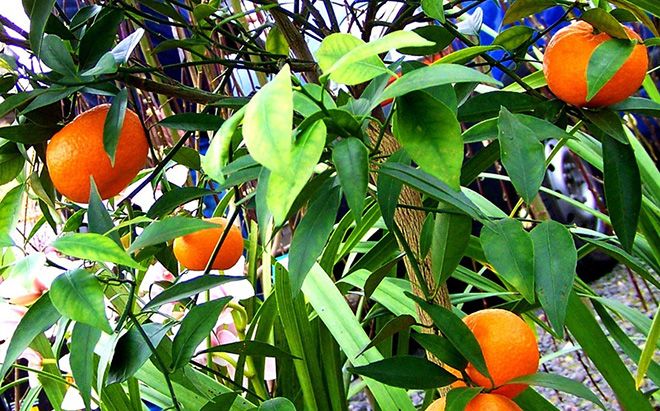
For a nursing mother, the abuse of these fruits is also dangerous. After a long period of abstinence from foods high in organic acids, a woman may experience heartburn while consuming these citrus fruits.
It is extremely dangerous to include tangerines in the diet if manifestations of gestational diabetes mellitus were observed during pregnancy, because. fructose can trigger an attack.
This fruit contains a large number of active substances, so it can cause exacerbation of cholecystitis, hepatitis, nephritis, colitis and many other pathologies. In case of these diseases, the consumption of tangerines should be avoided.
Rules for introducing into the diet
The fact that tangerines may be on a nursing mother’s menu does not mean that they can be eaten in unlimited quantities. You need to follow a number of rules for adding fruit to the menu:
- You should not try tangerine before the 3rd month.
- Start with one slice. During the day, the mother observes the baby’s reaction. If everything is good, then you can increase the number of slices.
- Pediatricians advise eating fruit in the morning, before feeding the baby.
- Mom should keep a food diary where she will write down new foods. This makes it easier to determine what may cause an allergy in a child.
- If a rash appears or a change in the nature of the baby’s stool, citrus is excluded for a month.
- If the baby's reaction to the new fruit is normal, the mother can eat more tangerine slices. But no more than 2-3 per day!
The main principle that should be followed during lactation is moderation.
There is no need to introduce several new products in one day. Otherwise, it will be difficult to determine what the baby is allergic to. Mom can make juice from tangerines and add them in small quantities to dishes.
How to introduce it into the diet of a nursing woman
When answering the question whether a nursing mother can eat tangerines, an important criterion should be taken into account: tangerines should not be consumed until the baby reaches 3 months of age. Until this age, a baby’s stomach is absolutely not adapted to digest citrus fruits. Some experts advise starting to use them when the baby is 5 months old.
Tangerines should be administered in small portions during breastfeeding. Eat a small slice of the fruit, always in the first half of the day. Observe the baby's reaction after feeding for three days. Avoid eating any new foods during this period. Your task is to identify an allergic reaction in your baby specifically to citrus fruits. If your baby develops a red rash or colic, consult a specialist.
If after three days the baby does not show any negative consequences, you can eat 2 small slices of tangerine and continue observation. If the baby’s reaction is normal, continue to increase the dose by 1 slice once every three days.
Remember that a nursing mother should eat tangerines with caution. The maximum consumption rate for a normal child reaction is no more than 1 medium fruit per 3 days.
Minimal negative consequences are observed in those breastfed babies whose mothers ate no more than 2-3 medium fruits per week. The fact is that there is a concept of a so-called cumulative allergic reaction. A child’s body can accumulate certain substances and when there is an excess of them, an allergic reaction begins, which manifests itself as itching, rash, redness or disorders of the digestive system.
The benefits of these fruits

Citrus fruits contain a large number of vitamins necessary for the body:
- Vitamin C strengthens the immune and cardiovascular systems. It also promotes better absorption of iron.
- Calcium and phosphorus are needed for bones and teeth.
- B vitamins improve the condition of skin and hair, help keep the body in good shape and increase the amount of serotonin, which is important during lactation.
- Vitamins A and E improve vision and accelerate the process of cell regeneration.
- Fruit acids give a boost of energy.
- Toxins are removed from the body.
- Pectins and organic acids, fiber improve the functioning of the gastrointestinal tract.
- There is an increase in appetite.
Due to the beneficial properties of tangerines, mothers want to introduce them into their diet as early as possible. Especially in late autumn, when the period of colds begins.
What fruits can you eat in the first months of breastfeeding? Read the material at the link.
Benefits of tangerines
The composition of tangerines is extremely rich: orange fruits include a whole range of important vitamins and elements that support the functioning of the immune system and are beneficial to the entire body:
- Ascorbic acid is an important element for maintaining the functioning of the immune system, including 1 tangerine in your daily diet, you can cover the body’s daily need for this element.
- Pectins and organic acids help improve digestion.
- Fiber is required to stabilize intestinal function.
- Fruit sugars are a source of energy.
- B vitamins are important for the functioning of the cardiovascular system, participate in the process of hematopoiesis and regulate cell metabolism.
- Vitamins A and E are necessary to improve cell regeneration and strengthen the eye muscles.
- Calcium and phosphorus contained in the pulp of tangerines are necessary for bone tissue and skin.
- Lutein and zeaxanthin have proven benefits for vision.
- Iron and magnesium are important for the process of hematopoiesis.
The richest in these elements are the peel of tangerines and the white fibers that bind the segments. They also contain special flavonoid substances - they help the body fight bacteria and have a tonic effect on the nervous and cardiovascular systems.
Thus, eating tangerines while breastfeeding will allow the mother to strengthen her immunity and saturate her cells with important elements in a pleasant way.

Dangers to the child

The most important thing is the appearance of allergies. The risk increases if someone in your family has it. Or if the mother does not follow the recommendations of pediatricians.
Tangerines should be excluded for the following pathologies:
- skin rashes;
- changes in stool condition;
- colic;
- bloating.
In these cases, the mother should stop eating tangerines for a while. You can try again after a month or later.
Are bananas allowed during the 2nd and 3rd month of breastfeeding? Is it possible to eat citrus fruits - lemons, oranges, grapefruits, pomelo? What about peaches and nectarines? You will find answers to these and other questions in the materials below.
What varieties of citrus are best to eat during breastfeeding?
There are different varieties of tangerines available in stores. But not all are useful for women during breastfeeding. What types should you pay attention to:
- Abkhazian - fruits of a light orange hue, juicy and sweet and sour. The most useful and environmentally friendly, because they are not processed in any way.
- Israeli - tangerines have thin skin. They have a sweet taste.
- Spanish - stands out for its very sweet taste and bright orange color. If you buy a tangerine on a branch, it can be stored for several days.
Pediatricians advise nursing mothers to choose citrus fruits from Abkhazia.
How to choose?
In order for tangerines to be useful for a breastfeeding mother, you need to choose good fruits. Here are some recommendations for choosing:

- Buy only in season.
- It is better to choose Abkhazian ones. Those brought from other countries are collected unripe so that they can better withstand transportation.
- A shiny peel is a sign that there is wax on its surface.
- If there are dents, cracks or darkening on the peel, you should refuse to buy a tangerine.
- When fresh fruits are pressed with a fingernail, juice squirts out.
- The tangerine should be of medium elasticity to the touch.
By following these tips, a nursing mother will be able to choose healthy citrus, which will reduce the risk of allergies.
Dish recipes
Mom can make juice from them or prepare simple dishes, adding variety to her menu.
Healthy juice
You can drink it during the 3rd–4th month of breastfeeding. To prepare it you will need:
- tangerines - 2 pcs.;
- carrots - 150 g.
- Pass the peeled, washed and chopped ingredients through a juicer.
- Mix in equal proportions.
- Dilute the finished juice with water.

Jam
You can introduce it into the diet at the 5th–6th month of feeding.
You need to prepare the following ingredients:
- tangerines - 1 kg;
- 1/2 lemon;
- sugar - 800 g.
- Tangerines need to be divided into slices, pits removed, transferred to a bowl and covered with sugar.
- Add lemon juice, mix everything and let it brew for an hour.
- Then bring to a boil over low heat and cook for 20 minutes.
- Grind the mixture in a blender and cook for another 40–50 minutes until it thickens and becomes transparent.
- The jam is poured into jars and placed in a cold place for storage.

Sweet rice
Rice with dried fruits is good for a nursing mother. But it can cause constipation, so it should be eaten in moderation and eliminated when this problem occurs.
To prepare it you will need:
- rice - 100 g;
- sweet apples - 2 pcs.;
- tangerines - 2 pcs.;
- raisins - 50 g;
- butter - 40 g;
- sugar - 50 g.
- Place raisins in cool water for 30 minutes.
- Boil the rice until half cooked without salt.
- Peel and pit the fruit and cut into cubes.
- Melt butter in a frying pan, add fruit, raisins and sugar.
- Place rice on top, pour a small amount of water and simmer under the roof until the rice is ready.
- At the end, mix the ingredients of the dish.

The diet of a nursing mother should not be monotonous. The diet needs to be gradually expanded by adding new products. Tangerines can be eaten from 3-4 months of breastfeeding. The main thing is to observe moderation, then citrus fruits will benefit mother and baby.

